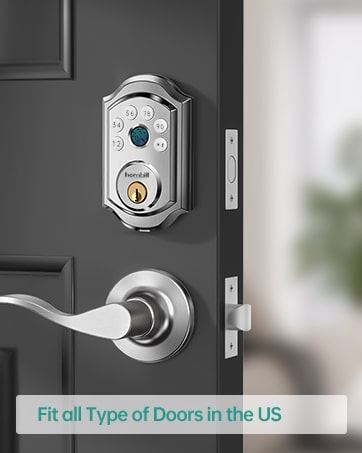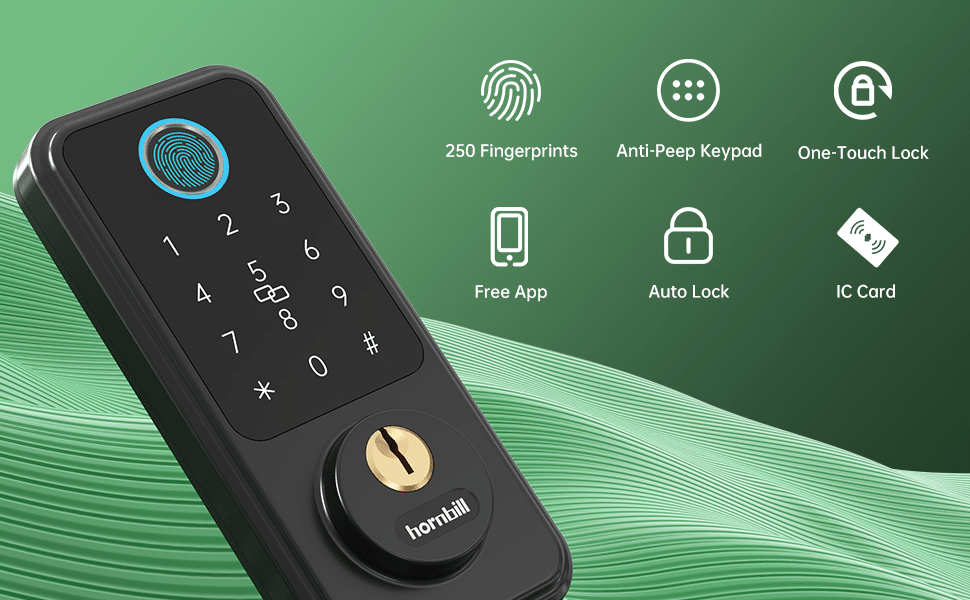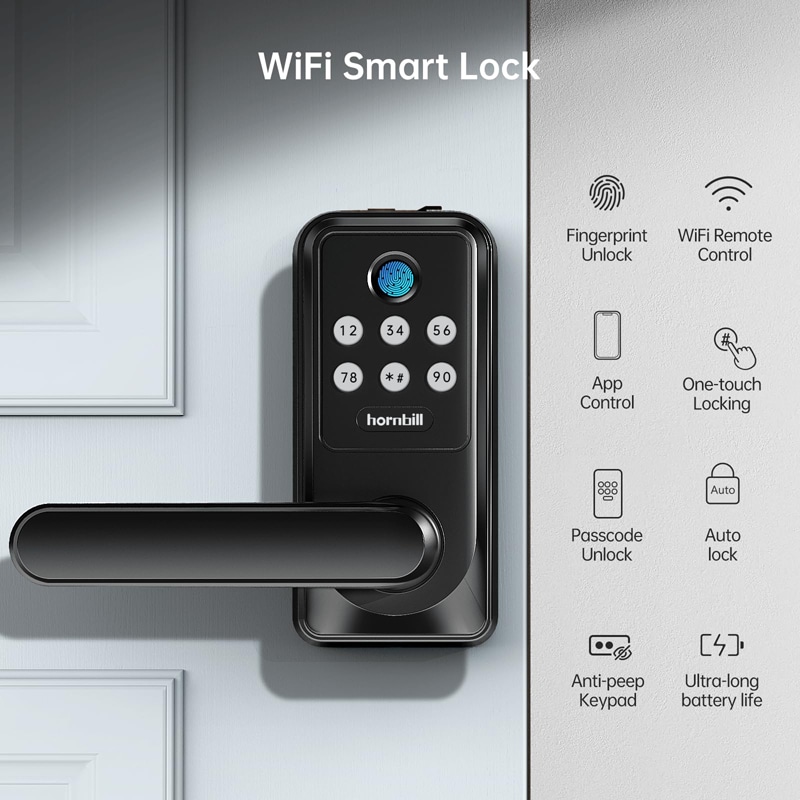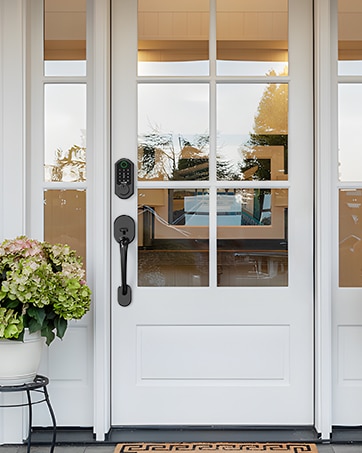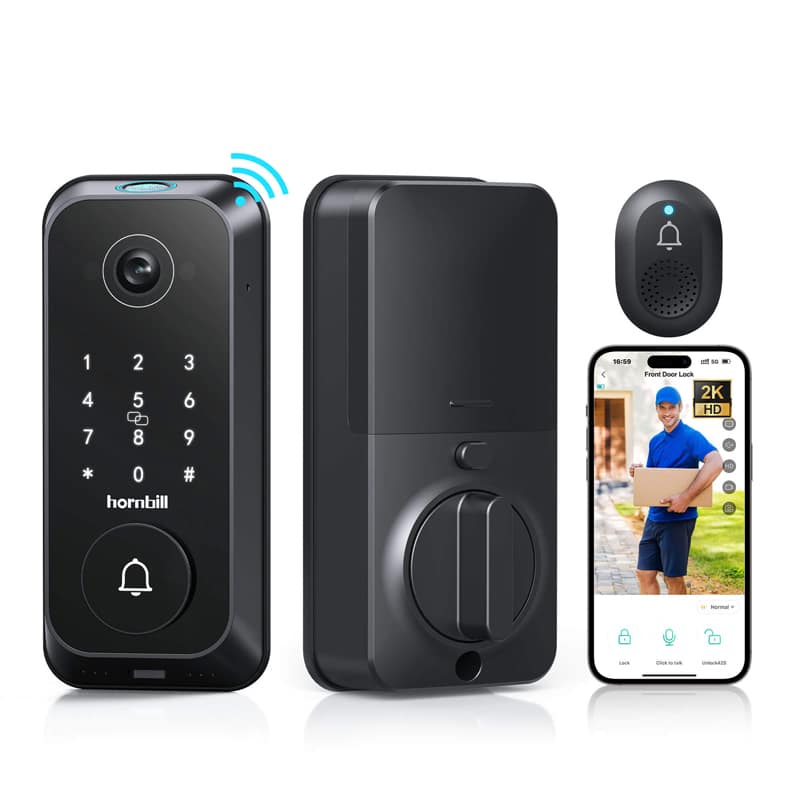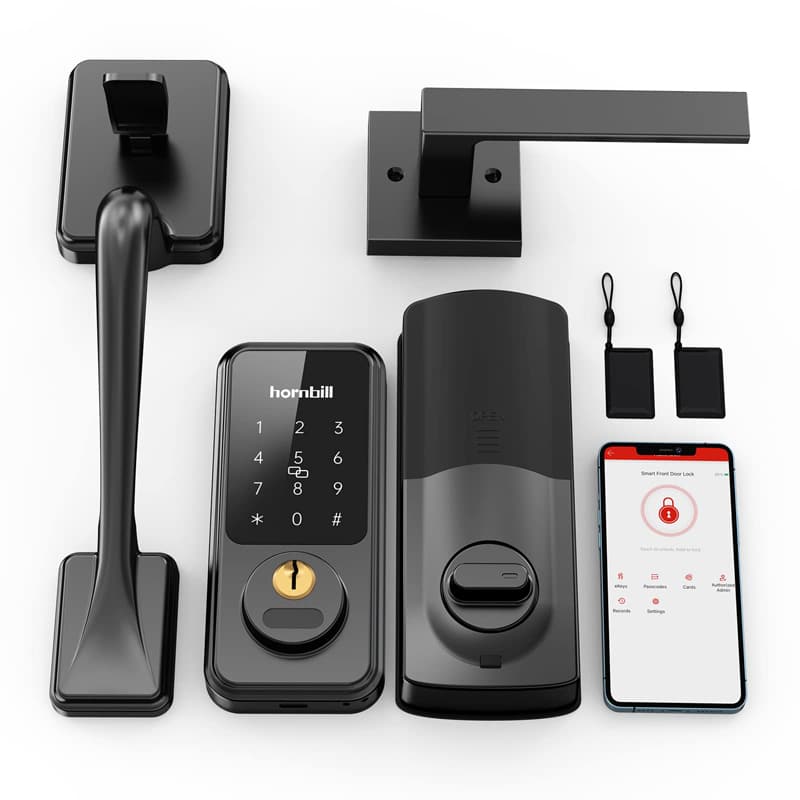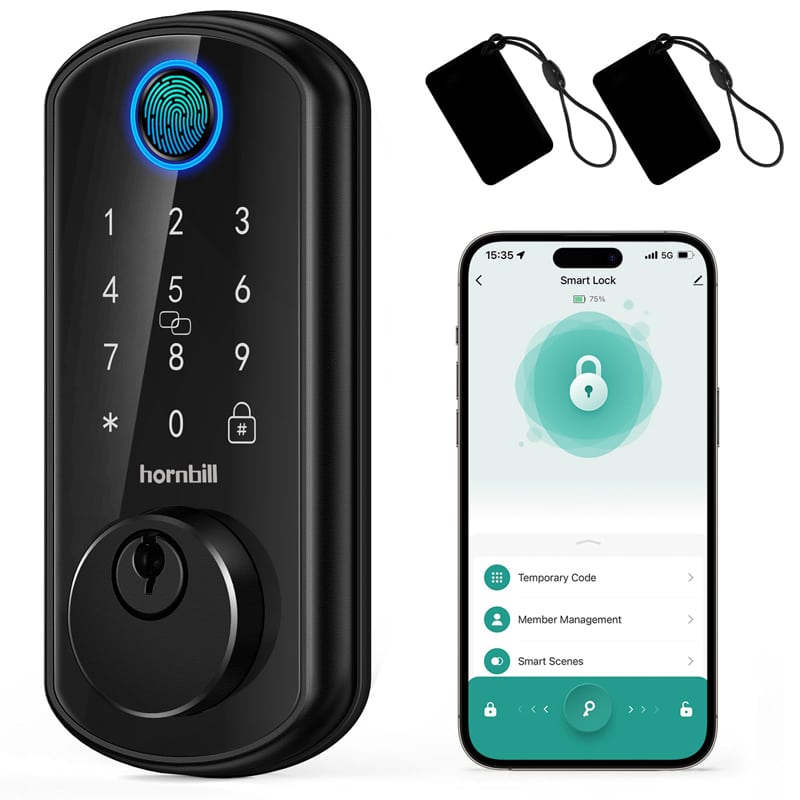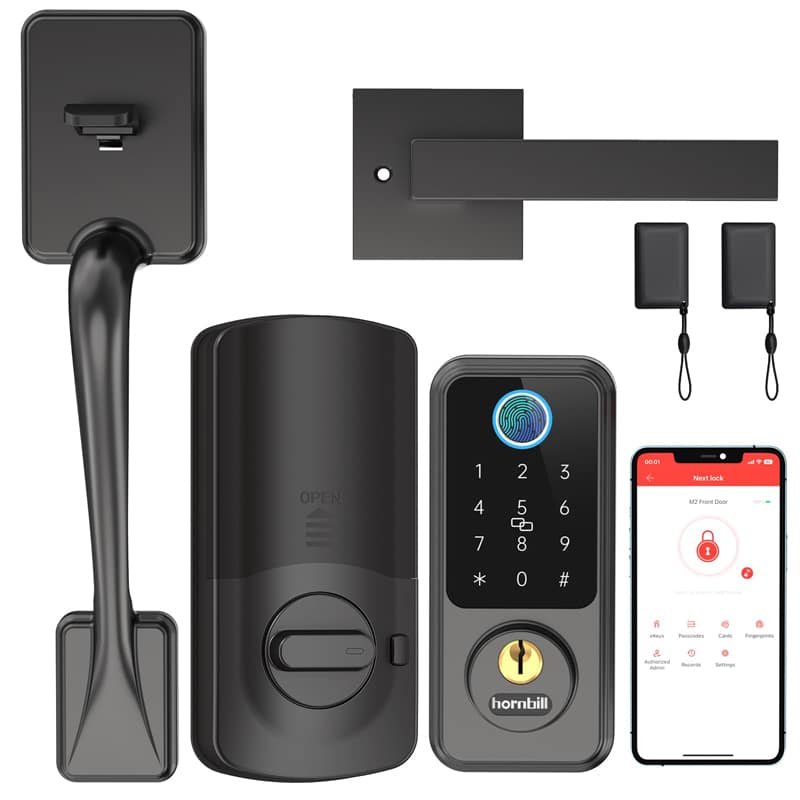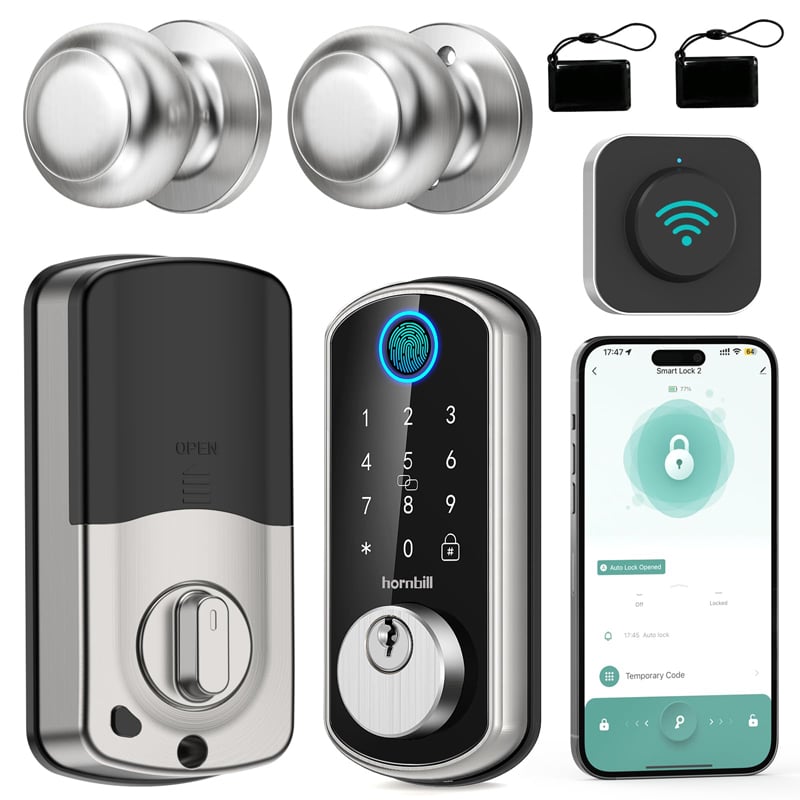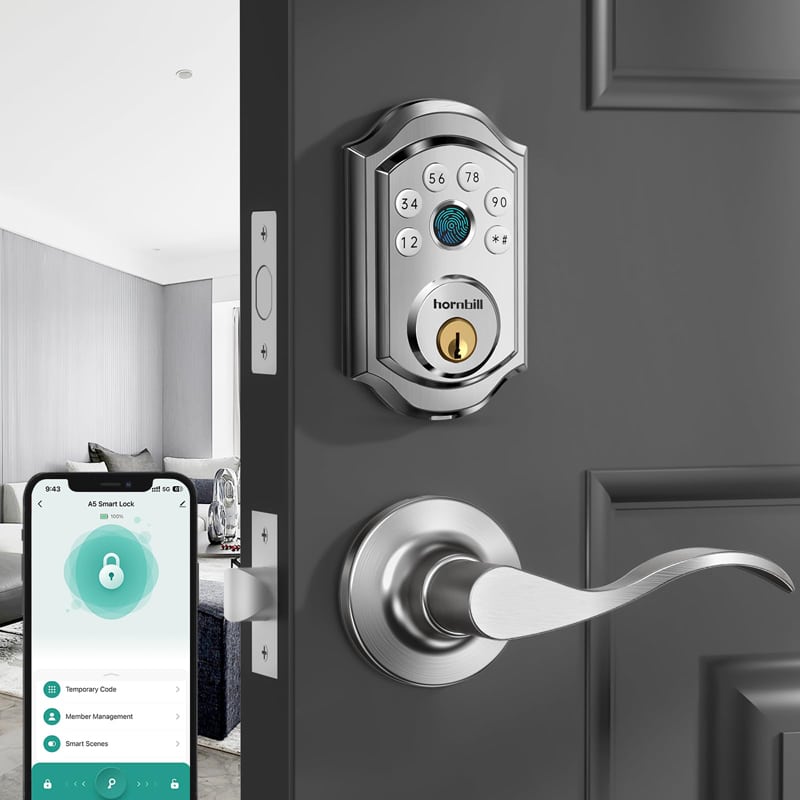In an age where technology is advancing at an unprecedented pace, security systems have evolved tremendously, primarily with the advent of biometric technology. One of the most widespread applications of this biometric technology is fingerprint locks. Considered as enhanced security assets, fingerprint locks might raise certain concerns, especially about the possibilities of fingerprint duplication. So, the question arises, can a fingerprint lock prevent fingerprint replication? Let’s have an in-depth look.
Hornbill fingerprint door locks rely on biometric technology that scans and stores unique fingerprint patterns of individuals. Due to the distinctiveness of each person’s fingerprints, this type of lock is usually deemed more secure than conventional ones. However, similar to any other safety system, even fingerprint locks are not entirely incorruptible.
A concern that hovers around the use of fingerprint door locks is the risk of fingerprints being obtained from different surfaces and duplicated. This can be achieved through several methods like creating a mold of the fingerprint or using high-definition photography to capture intricate details of the fingerprint. In such a scenario, a system that solely depends on fingerprint scanning could potentially be at risk.
However, several countermeasures have been introduced with advancements in security technology. Some of the modern fingerprint locks are designed with anti-spoofing measures. These involve algorithms that can discern whether the presented fingerprint is from a living source or a mimic. Such systems are designed to detect the fine differencing patterns between a life scan and a replica, thereby averting wrongful access.
Yet another development in the security sphere is that of multi-factor authentication. Several biometrics systems nowadays have integrated this approach, mandating more than just fingerprint scanning for access authorization. Such systems might ask for a traditional PIN code, another fingerprint, or another kind of biometric data, like facial recognition or retinal scans in conjunction with the fingerprint. This approach mitigates the potential security breaches due to fingerprint copying by adding another layer or levels of security.
In summary, while doorbell fingerprint scanners offer an augmented security advantage, concluding that they are entirely invincible against fingerprint duplication would be a stretch. Yet, it is undeniable that with anti-spoofing features and the multi-tiered authentication provision, modern systems have managed to substantially minimize this risk. This certainly brings relief to the safety-conscious user. As always, it’s imperative to source locks from reputable manufacturers and ensure that the usage and management of these locks follow top security practices.
In this technological era, bear in mind that though advancements are associated with some risks, they can most often be neutralized by picking comprehensive security measures and staying updated about ongoing security protocols. While technology cannot guarantee complete safety, it can assuredly fortify it, as is evident in the development of fingerprint electronic locks from simple biometric devices to sophisticated multi-level security systems. The journey does not end here, and it will continue to evolve, offering more secure and convenient solutions shortly.

